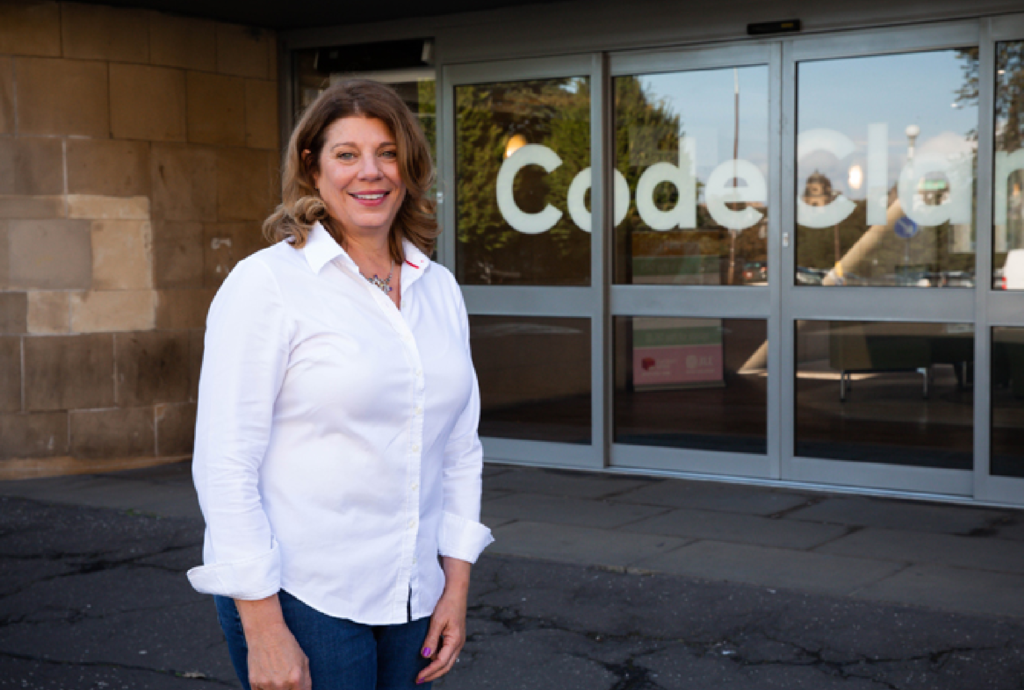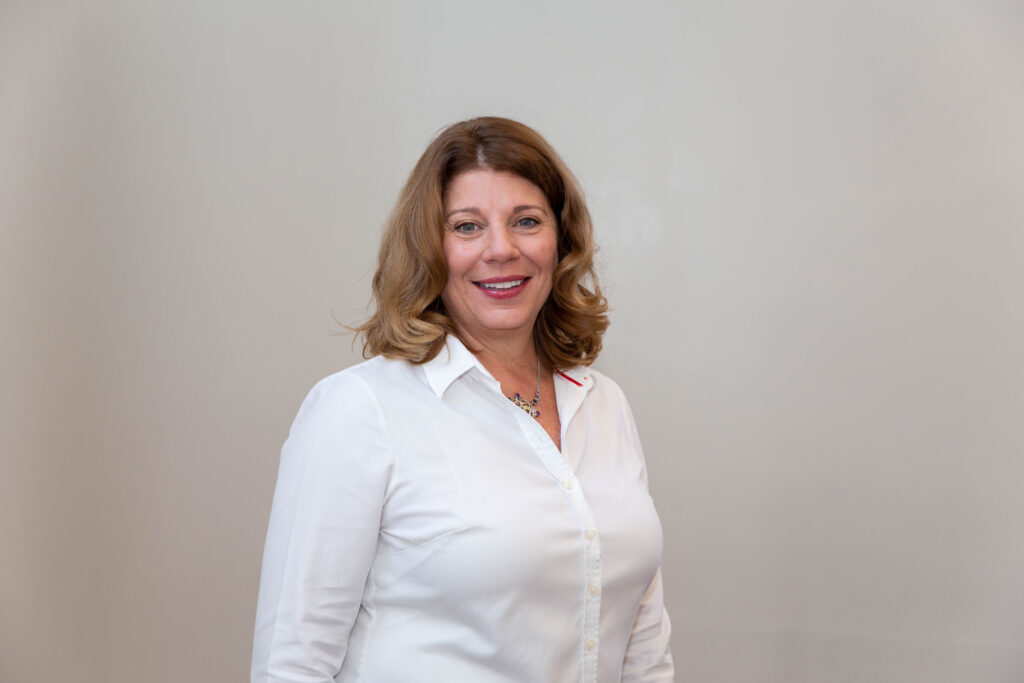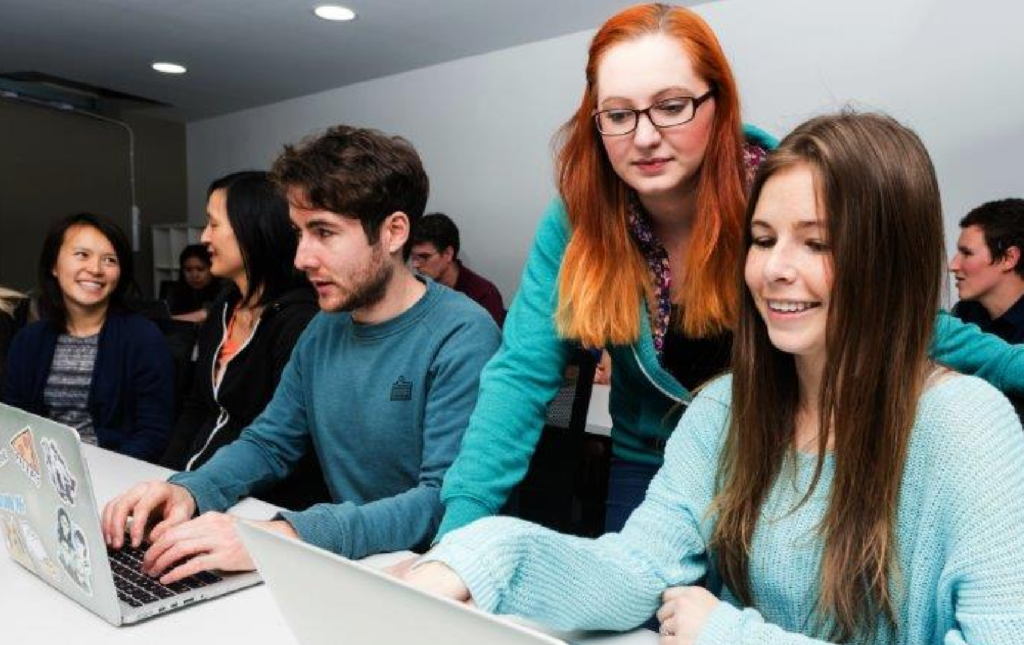
In Scotland there has been an emphasis on skills development in recent years, and this has been amplified in the area of digital skills through increasing levels of private and public collaboration creating increased demand for education and training.
The prevalence of technology and inexorable increase in data will only make the digital skills agenda more pressing and it is vital that a sustainable approach to delivering it can be identified.
One organisation which has shown innovation and true impact in this space is CodeClan – Scotland’s first and only digital skills academy – and in this interview with outgoing CEO Melinda Matthews-Clarkson we learn what is working well and what more must be done to bring forward the digital skills and talent needed in Scotland.

Melinda Matthews-Clarkson, outgoing CEO of CodeClan
You have had a very successful career in technology. What initially drew you to this sector?
I started my career in education and then moved into hospitality for a time. I realised quite quickly that this wasn’t where my passion lay so took a job as a Head of Marketing at a very small technology firm, and that really was the opening into the sector. I am a very curious individual and I realised pretty fast that working in technology allowed the mind to be opened and ask questions continuously as we look for answers about how things work and how they can improve our lives.
Since that point I have pursued a career in areas of technology which are focused largely on what can be done for people and to make things better for them. After a time, I really embraced the narrative: “If I can think it, it can happen and it can be done”. That is what technology taught me and it continues to interest me and keep my curiosity going. There is always something to learn and most of it ultimately is for the betterment of people, business, and the planet.
How has the tech sector in Scotland evolved during your time here? Are there any particular areas you would highlight?
When I came to Scotland in 2016 I had been working at IBM for a number of years – a business that was very much at the edge of the technology frontier, creating and innovating all the way.
Scotland’s famously innovative edge wasn’t overtly clear to me to at that point and there did seem to be a slightly apathetic view which had crept in. However, there has been a shift in the past 3-4 years and the pandemic has helped to reduce some of the innovation lag and brought Scotland much more up to speed. It has revolutionised worker in certain sectors, such as health, finance and social causes.
The mindset is one of the things that has evolved –the desire to do things better and quicker. There is still more to do about focusing more specifically on outcomes rather than just the technological solutions. In Scotland we do have the technology and we need to put architects and the infrastructure in place. Covid certainly brought a level of pace. However, now that increased pace is slowing down as people are exhausted and we have to watch that people don’t fall back on their laurels because the sense of urgency isn’t as paramount as it was.
“Seeing the students’ success has been one of the best feel-good aspects of my tenure.”

There is a growing emphasis on the digital skills agenda in Scotland – what is being done to train and retrain talent to meeting growing demand?
The skills agenda in Scotland from a technology standpoint had been quite a business-as-usual approach. CodeClan was definitely a disruptor but an enabler. That is what we wanted to be and have worked hard to keep that going. The CodeClan model had proved successful and each year we were putting 300 qualified net new people into the talent pool. However, the digital skills gap is many thousands, so we weren’t going to really scratch the surface.
The pandemic brought opportunity as there was so much emphasis on technology and what it could do but we have also been impacted by people leaving the workforce, like so many other sectors. We now have a hole of about 15,000 technologists required in jobs across Scotland. Code Clan has upped the numbers it can train each year to 320 new digitally educated people and looking to upskill workers to 500 but this isn’t enough.
A very significant move in Scotland was the commissioning of the Mark Logan Scotland Technology Ecosystem Report (STER) by Kate Forbes MSP, Cabinet Secretary for Finance and the Economy. A champion of the sector Ms Forbes really has made a difference to this space and by commissioning a very influential and bright digital leader there is a clear outline for how to make Scotland’s tech ecosystem hum.
Logan broke it down to three core challenges: Education – at primary, secondary level as well as for businesses and consumers; Network and entrepreneurial buzz – we need to look outside ourselves to work out how to do things better and faster, which is reflected in the announcement of a £42 million tech scaler network run by CodeBase; Funding was the final element – we need to find and encourage more investment especially for woman’s founders.
The STER Report put a big focus on digital and technical skills and really asked whether we were teaching digital across the board in a range of subjects. It drew a line in the sand and said: ‘Stop patting ourselves on the back; we have some work to do.’ He published that in September 2020 and now in 2022 we are starting to see more traction and initiatives on the skills agenda, but I would argue it definitely needs sense of urgency. There is still a fundamental pace problem.
Our organisation has been delighted with support from Baillie Gifford to fund the Code Clan Youth Academy for 14 young people aged 15-21 who are disenfranchised from formal education. They provided £30k for this and it has made a wonderful difference, but for the skills agenda to move on it does need a lot more funding publicly and privately.
Is there enough being done to encourage interaction and collaboration between the academic, political and industry spheres to drive talent identification and a prosperous tech sector?
I think there is quite a bit of activity in this space that needs a greater sense of urgency and to remove the noise. The pandemic did help in certain ways as all the schools had to roll out devices so children could be connected. That has brought a greater integration between school, industry and government, but that is only one area and more needs to be done.
There is a great linkage between academia and industry, and there are some very good examples of alumnae going back and talking to their schools and universities and trying to get young people interested in technology and specific digital roles. But there isn’t the infrastructure (teachers and tools) to support it on a grander scale.
However, the structure of the political agenda and the speed with which it is being delivered is not enough. More work needs to be done with Skills Development Scotland on the apprenticeship model and how that is moved forward. More focus is needed to reduce the time spent identifying and training apprentices – we need to speed that up to get more young and engaged people in to the workforce. We desperately do need thousands more technologists in the system over the next two years and this requires a huge shift in mindset, funding and approach.
“We desperately do need thousands more technologists in the system over the next two years and this requires a huge shift in mindset, funding and approach.”

How is the digital sector in Scotland supporting a transition to net zero?
We do have multiple innovation centres including net zero, 5G, census innovation and datalab, and we also have specialists, but it does need greater co-ordinating at the top in my view. I believe we need a Net Zero tsar and better encouragement of steps that need to be taken. This has to involve the citizen, industry and the government. However, this feels like we need a better vision of what we are trying to achieve both centrally and individually both in Scotland
Can you tell us what you are most proud of in your time at CodeClan? And what you would like to see in its future?
After five years as the CEO of CodeClan I decided to step down, and take some time to reflect and recharge. The business is now in a solid state after the pandemic and the ecosystem is hungry for skilled technology individuals so I felt it was a good time to pass the baton to a new leader. I am travelling back to the USA for the next three months, but when I return to Scotland in February 2023 I hope to find a new role in the Scottish Tech Ecosystem.
My time at CodeClan has been a fascinating experience. Five years ago I put a quote on the wall at CodeClan’s Edinburgh Campus, it says, ‘Will it be easy? Nope, but worth it? Absolutely’. Now I understand that quote applies to all that study and work at CodeClan. It is a unique environment that allows people to grow, learn and connect with passionate people around technology.
After working in a Fortune 100 company, it was beyond refreshing to work with people that really care. It is a perk that I didn’t realise at the start but truly felt blessed when I realised CodeClan was a unique place to work. I am a better person and a better leader from my experience as the CEO of CodeClan.
There have been so many amazing moments in my time here. We have won awards, been part of growth initiatives, created new courses, teamed with organizations like Intro Work, Equate, DataLab, TechMoms, Tigers, DataKirk and our sponsors for Digital Diversity Group. The partner community grew from 86 to 400 and it has been such a pleasure to work with them on their talent needs. The best thing has been seeing the students graduate and getting the job of their dreams and then seeing them three years later being promoted, buying homes and starting families! Seeing the students’ success has been one of the best feel-good aspects of my tenure.
The team has stayed solid over the years, Covid was challenging, to say the least, and I look back now and think ‘how did we do that? How did we stay open through two and half years of disruption?
We did it because we have the most dedicated and passionate staff hands down. As a not-for-profit social enterprise, we have weathered the many storms over five years and have faced them with a growth mindset, collaborative problem solving and determination to see it through. I could not be prouder to be part of the amazing team.
And, finally can you share any plans for your future?
I love it here and have invested over five years of my life in Scotland. We are short of people here and I don’t want to take myself out of the pool. I will take a second Chair seat to support the next CEO at Code Clan and I think that is so important to be able to complete a handover and support my successor in their future role. Other than that I don’t have any specific roles lined up but I am keen to remain very much involved in the technology ecosystem, ideally with female-based scaling businesses. I am going back to the US for a while to help my daughter set up her new place after graduating. I plan to train to become a coach in entrepreneurship and will be back here in February 2023.
Melinda Matthews Clarkson: Biography
Melinda Matthews-Clarkson has spent her 28-year career as a leader in technology. She is currently the CEO of CodeClan where she leverages her passion for people and her business skills to drive growth into the Scottish Digital Economy. She has held roles as a VP of Sales, Global Executive of Business Development & Enablement, Director of Marketing and VP of Alliances and Partnerships.
Melinda has a BS degree in Sales and Marketing Education; has certifications from UCLA Women in Leadership, Executive Coaching, and Mentoring from Edinburgh Coaching Academy, and has been recognised in the Top 100 Women in CRN Software Channel publication from 2014, 2015 and 2016. She has been nominated for many awards as the CEO of CodeClan including Inspiring Women in Tech and was recently named one of the Top 7 Women to watch in Scotland Tech.
